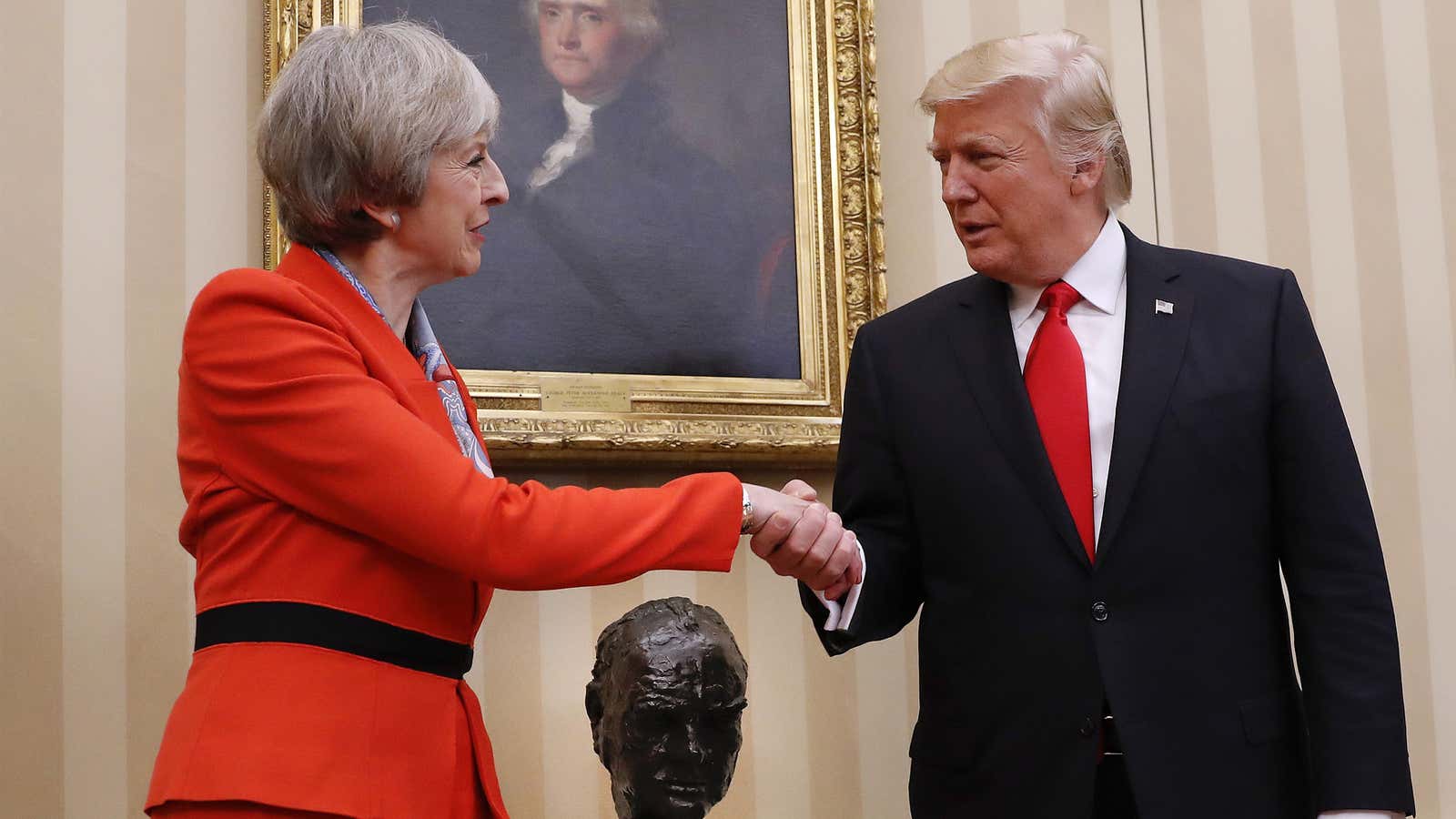On Jan. 27, Donald Trump had his first meeting as US president with a foreign head of state. The honor went to UK prime minister Theresa May. They had a conversation in the Oval Office followed by a joint press conference, during which the two spoke enthusiastically of their nations’ longstanding partnership.
Trump opened by acknowledging that “the special relationship between our two countries has been one of the great forces in history for justice and for peace—and by the way, my mother was born in Scotland, Stornoway, which is serious Scotland.” He then proceeded to laud the UK on Brexit. He did so indirectly at first, saying that “the United States respects the sovereignty of the British people and their right of self-determination,” and that “a free and independent Britain is a blessing to the world.”
He drew a fairly direct line between his election victory and the choice for Brexit, saying that “both America and Britain understand that governments must be responsive to everyday working people, that governments must represent their own citizens.” He said citizens of both countries “were getting ripped off by the rest of the world.”
Trump said he predicted the June vote in the UK would break in the Brexiteers’ favor. ”I said Brexit is going to happen and I was scorned in the press for making that prediction. I was scorned,” he said, working in one of his characteristic complaints about the media.
And then, with rather uncharacteristic clarity, he continued:
“And I said I believe it’s going to happen because people want to know who is coming into their country and they want to control their own trade and various other things.”
And with that one sentence, Trump offered perhaps the most elegant distillation yet, from anyone, as to why his campaign resonated with tens of millions of American voters, and what it is that appears to be pushing the Western populist wave forward.
